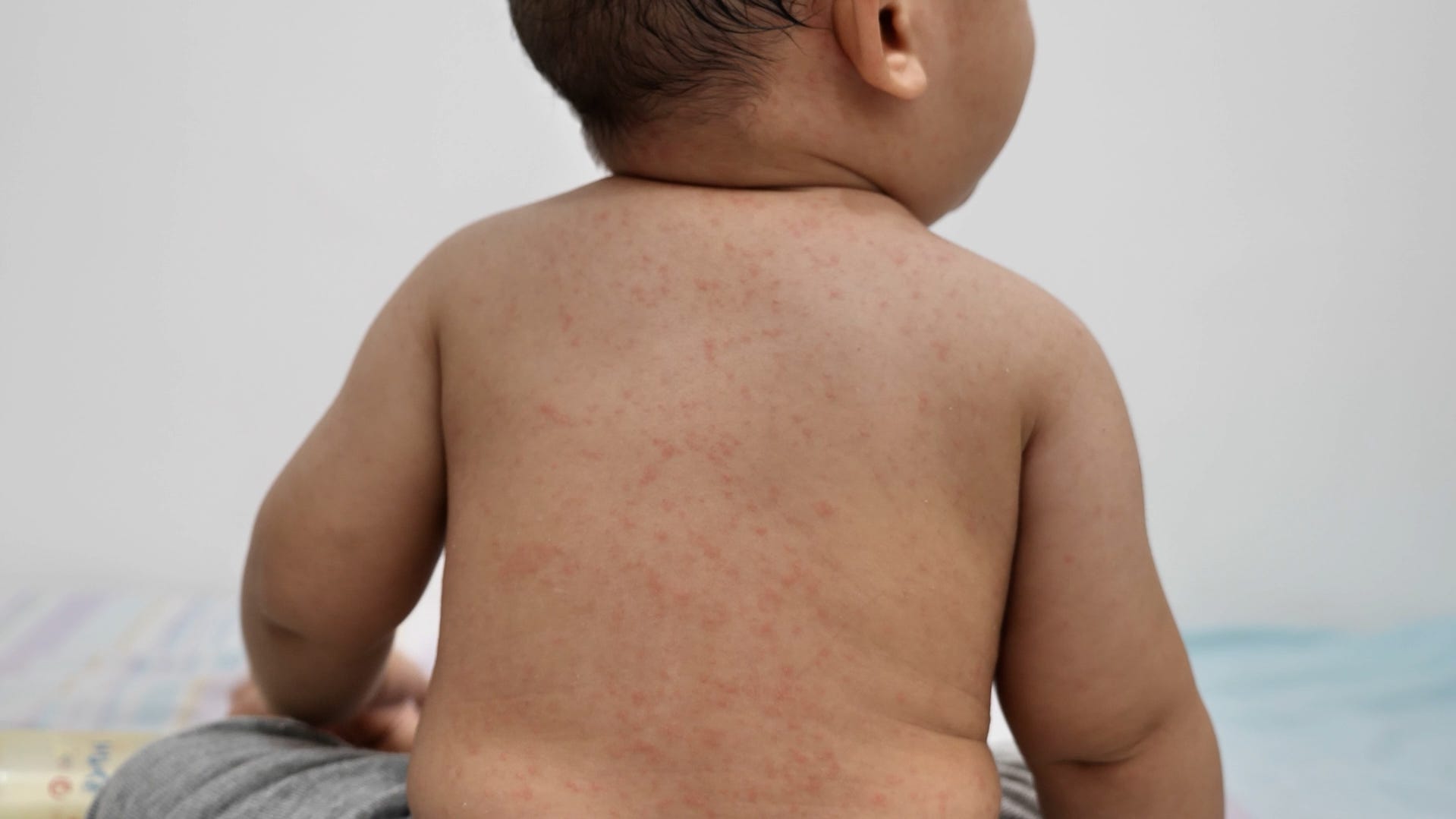A group of newborns were exposed to measles. Can babies be protected?

As the measles outbreak in Texas and New Mexico swells into one of the largest of the past decade, health officials say young babies have been added to the growing list of those who have been exposed.
Katherine Wells, director of public health in Lubbock, Texas, said in a briefing Tuesday that “very young babies” who were exposed to measles have needed immunoglobulin injections, antibodies that help fight against a possible infection.
Wells did not specify when or where this happened. NBC News reported newborns may have been exposed to measles last week at University Medical Center Children’s Hospital in Lubbock after an infected woman gave birth at the hospital.
The hospital has yet to respond to Paste BN’s request for comment.
“That’s really why measles is so scary,” Wells said. “It’s so communicable and then it’s so easy for it to enter some of these very vulnerable areas where babies don’t have those vaccinations, yet… and we’re seeing those cases more and more as this outbreak continues to grow.”
The recommended age for babies to receive their first dose of MMR vaccine, which protects against measles, mumps and rubella, isn’t until between 12 and 15 months. However, pediatric infectious disease experts say there are special precautions hospitals and parents can take to make sure young infants are protected.
The MMR vaccine can be given to infants as young as six months in special circumstances, such as if there’s an outbreak or the family plans to travel, said Dr. Katherine Moyer, pediatric infectious disease specialist at Inova Children’s Hospital in northern Virginia.
However, that early dose doesn’t count towards the two-dose series so babies would have to get another dose between 12 and 15 months and their final dose between 4 and 6 years old.
The first dose of MMR vaccine is about 93% effective against measles and the second dose bumps that to 97%, Moyer said. After vaccination, it takes about two weeks for a child to build that intended immunity.
Before 6 months old, babies typically have some immunity from their mother that was transferred in the womb, she said. Breastfeeding mothers can also transfer protective antibodies to their unvaccinated infant.
Health department and hospital protocols recommend babies between 6 and 12 months old who are exposed to measles receive the vaccine no more than three days after exposure. They can also receive immunoglobulin between three and six days.
If a parent or caregiver suspects their infant may have been exposed to measles, Moyer said it's important to inform their healthcare provider right away since the clinical tools to protect against infection are time-sensitive.
Measles symptoms can take up to 14 days to appear after exposure.
"The biggest thing parents can do is to make sure people around them are vaccinated - it's called 'cocooning,'" Moyer said. "If you have people that are vaccinated around them, even in the setting of an outbreak, then it's much less likely to spread."
She also doesn't recommend traveling with infants who can't get the vaccine or bringing them to crowded places, "just because we know that measles can be in the air for two hours after an infected individual has been there."
An unvaccinated child with no underlying health conditions died of measles in Texas in February, marking the first death in the U.S. from the disease since 2015.
Measles cases in Texas and New Mexico rose to 317 on Tuesday. The country has already surpassed last year’s count of 285 infections, according to data from the Centers for Disease Control and Prevention.
Cases are “on pace for about 1,200, a fourfold, almost fivefold increase from the year before,” said Frederic Bertley, immunologist and CEO of Columbus, Ohio-based Center of Science and Industry.
Contributing: Reuters.
Adrianna Rodriguez can be reached at adrodriguez@usatoday.com.